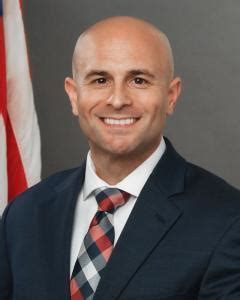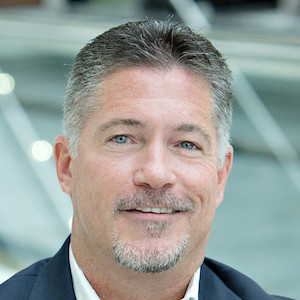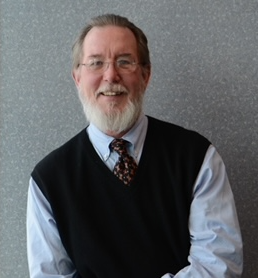News
Comment Period for the Draft Project US@ Specification to Open Soon
 As we continue to learn more about all of the factors that affect our health, where we live has proven to become more insightful over time. Our ability to study and measure health impacts, conduct public health monitoring across communities, deliver medications safely to patients, and a number of other efforts rely on the availability and accuracy of patient address data. Clinicians, researchers, and public health professionals must also have the ability to successfully link disparate records, which also requires standardized data.
As we continue to learn more about all of the factors that affect our health, where we live has proven to become more insightful over time. Our ability to study and measure health impacts, conduct public health monitoring across communities, deliver medications safely to patients, and a number of other efforts rely on the availability and accuracy of patient address data. Clinicians, researchers, and public health professionals must also have the ability to successfully link disparate records, which also requires standardized data.
- Login to post comments
- News
To Nurture Open Leaders, Managers Must Learn To Let Go
 In my previous article on talent development in open organizations, I explained how senior and upper-level managers can help young leadership talent develop without taking an entirely "hands off" approach. The truth is that leadership talent rarely develops on its own, and if organizations wishing to become more open want to see open leaders thrive, upper management has a specific job to do. It must create balance-not only between the organization's conventional management principles and more open ones, but also (as I've explained before) between reason and feeling, head and heart. In other words, this involves creating a balance between individual ego and collective needs. These are the primary conditions for getting the entire organization moving in an open direction.
In my previous article on talent development in open organizations, I explained how senior and upper-level managers can help young leadership talent develop without taking an entirely "hands off" approach. The truth is that leadership talent rarely develops on its own, and if organizations wishing to become more open want to see open leaders thrive, upper management has a specific job to do. It must create balance-not only between the organization's conventional management principles and more open ones, but also (as I've explained before) between reason and feeling, head and heart. In other words, this involves creating a balance between individual ego and collective needs. These are the primary conditions for getting the entire organization moving in an open direction.
- Login to post comments
- News
ONC's Efforts to Advance Worldwide Digital Health - The Global Digital Health Partnership White Papers
 As the world responds to the COVID-19 pandemic, we continue to see how digital health plays a vital role in care delivery. ONC recognizes the importance of advancing digital health at domestic and global levels. As discussed in a previous blog post, part of ONC's global engagement includes representing the United States in the Global Digital Health Partnership (GDHP). The GDHP currently runs five work streams: Interoperability, Clinical and Consumer Engagement, Cyber Security, Evidence and Evaluation, and Policy Environments.
As the world responds to the COVID-19 pandemic, we continue to see how digital health plays a vital role in care delivery. ONC recognizes the importance of advancing digital health at domestic and global levels. As discussed in a previous blog post, part of ONC's global engagement includes representing the United States in the Global Digital Health Partnership (GDHP). The GDHP currently runs five work streams: Interoperability, Clinical and Consumer Engagement, Cyber Security, Evidence and Evaluation, and Policy Environments.
- Login to post comments
- News
German Health System Adopts Open Source Matrix as Instant Communications Platform
 Gematik, the provider of digital solutions for the German health care system has chosen the open source Matrix protocol to underpin Germany’s new instant communication platform, which will be used by over 150.000 organisations, such as general practitioner offices, hospitals, and insurance organisations. The decision follows examples such as the German armed forces and France’s government adopting Matrix as the basis for their instant communication needs.
Gematik, the provider of digital solutions for the German health care system has chosen the open source Matrix protocol to underpin Germany’s new instant communication platform, which will be used by over 150.000 organisations, such as general practitioner offices, hospitals, and insurance organisations. The decision follows examples such as the German armed forces and France’s government adopting Matrix as the basis for their instant communication needs.
- Login to post comments
- News
Upstream Conference to Feature Open Source Maintainers
 Imagine the chaos that would occur if all open source software vanished with the snap of a finger. Picture the devices that would turn to bricks in our hands, the infrastructure that would fail, and the machinery that would fall silent. The truth is we probably don't stop to think about all the open source libraries, frameworks, and components we depend on-until something goes wrong. The extraordinary impact of open source is difficult to measure or quantify...Open source is a testament to human ingenuity, and it's not often that we take the time to celebrate what we-the creators and users of open source-have made together. We think it's time we did. That's why we're announcing a new type of open source event called Upstream. It's a one-day celebration of open source for the developers who use it and the maintainers that create it. We'd like you to join us on June 7 for this entirely virtual and free event where we'll focus on the creators behind essential open source packages and the developers who build amazing things with them.
Imagine the chaos that would occur if all open source software vanished with the snap of a finger. Picture the devices that would turn to bricks in our hands, the infrastructure that would fail, and the machinery that would fall silent. The truth is we probably don't stop to think about all the open source libraries, frameworks, and components we depend on-until something goes wrong. The extraordinary impact of open source is difficult to measure or quantify...Open source is a testament to human ingenuity, and it's not often that we take the time to celebrate what we-the creators and users of open source-have made together. We think it's time we did. That's why we're announcing a new type of open source event called Upstream. It's a one-day celebration of open source for the developers who use it and the maintainers that create it. We'd like you to join us on June 7 for this entirely virtual and free event where we'll focus on the creators behind essential open source packages and the developers who build amazing things with them.
- Login to post comments
- News
SERVANT LEADERSHIP --- A Challenging Imperative for Lasting Success
 Drawing from various models of servant leadership, there is one common theme - it's not about you; it's about others. Servant leadership is not unique to thought leaders, philosophers, military leaders, or sports figures. It is available to all of us. As expressed by Robert K. Greenleaf, a long-time AT&T executive who brought the concept of servant leadership from ancient times to present day, "good leaders must first become good servants." If this concept isn't bound by industry, culture, or demographic, shouldn't we all give it a try? Personal and company success is the byproduct of doing the best we can to make others' lives better.
Drawing from various models of servant leadership, there is one common theme - it's not about you; it's about others. Servant leadership is not unique to thought leaders, philosophers, military leaders, or sports figures. It is available to all of us. As expressed by Robert K. Greenleaf, a long-time AT&T executive who brought the concept of servant leadership from ancient times to present day, "good leaders must first become good servants." If this concept isn't bound by industry, culture, or demographic, shouldn't we all give it a try? Personal and company success is the byproduct of doing the best we can to make others' lives better.
- Login to post comments
- News
Optimal Flow: Building Open Organizations Where Leaders Can Emerge
 Previously in this series on open organizations and talent management, I've discussed the importance of cultivating an organization's open leaders by getting out of their way and letting them flourish. As someone invested in developing your organization's next generation of leaders, know that your goal here isn't to be entirely "hands off"; instead, your goal is to spend time building the systems and processes that help new leaders find their footing and unleash their passion. The truth is that leadership talent rarely develops on its own. Building these systems and processes is critical during your open organization's hybrid phase. In this article, I'll discuss what that means and why it's so important. I'll also offer a few crucial questions you should be asking yourself as you nurture talent during this phase of your organization's transformation.
Previously in this series on open organizations and talent management, I've discussed the importance of cultivating an organization's open leaders by getting out of their way and letting them flourish. As someone invested in developing your organization's next generation of leaders, know that your goal here isn't to be entirely "hands off"; instead, your goal is to spend time building the systems and processes that help new leaders find their footing and unleash their passion. The truth is that leadership talent rarely develops on its own. Building these systems and processes is critical during your open organization's hybrid phase. In this article, I'll discuss what that means and why it's so important. I'll also offer a few crucial questions you should be asking yourself as you nurture talent during this phase of your organization's transformation.
- Login to post comments
- News
6 Examples Of Open Source Best Practices In Knowledge-Sharing Projects
 The very effort of creating open source software is a massive knowledge-sharing experience, covering all the domains of software development with many methods and practices. Although there is rarely only one way to achieve a goal, open source communities have, over time, honed their knowledge into best practices as a natural byproduct of the open collaboration and transparency passed on within their respective communities. But what about best practices that span communities, which are useful beyond the unique needs of a single project and broadly applicable to any and all open source software efforts? I'll look at six different knowledge-sharing communities that take six approaches to gathering, maintaining, and distributing their best practices.
The very effort of creating open source software is a massive knowledge-sharing experience, covering all the domains of software development with many methods and practices. Although there is rarely only one way to achieve a goal, open source communities have, over time, honed their knowledge into best practices as a natural byproduct of the open collaboration and transparency passed on within their respective communities. But what about best practices that span communities, which are useful beyond the unique needs of a single project and broadly applicable to any and all open source software efforts? I'll look at six different knowledge-sharing communities that take six approaches to gathering, maintaining, and distributing their best practices.
- Login to post comments
- News
QUANTUM RISK - A Geek's Guide to the World of Risk
 Every once in a while, someone adds clarifying or new thoughts to an old practice, understanding, or belief. That's why authors and teachers are so plentiful because one can write about the same things using different words, vantage points, or exploratory insights and ideas…the endless beauty of the human experience and depths of cranial imagination. In this context, let me refer you to Mr. Tony Fish and his recent article "Quantum Risk: a wicked problem that emerges at the boundaries of our data dependency". To borrow from a modern day philosopher Forest Gump: I may not be a smart man, but I know what brilliance is. Mr. Fish in my view seems to have quite aptly inserted himself in a discussion between Hawking, Chesterton, Plato, and Aquinas. His article is packed with risk goodness and an expanding universe of understanding risk.
Every once in a while, someone adds clarifying or new thoughts to an old practice, understanding, or belief. That's why authors and teachers are so plentiful because one can write about the same things using different words, vantage points, or exploratory insights and ideas…the endless beauty of the human experience and depths of cranial imagination. In this context, let me refer you to Mr. Tony Fish and his recent article "Quantum Risk: a wicked problem that emerges at the boundaries of our data dependency". To borrow from a modern day philosopher Forest Gump: I may not be a smart man, but I know what brilliance is. Mr. Fish in my view seems to have quite aptly inserted himself in a discussion between Hawking, Chesterton, Plato, and Aquinas. His article is packed with risk goodness and an expanding universe of understanding risk.
- Login to post comments
- News
Keeping Everyone in the Know: New CMS ADT Rule
 On March 9, 2020, the Centers for Medicare & Medicaid Services (CMS) issued the Interoperability and Patient Access Final Rule aimed at enhancing interoperability and increasing patient access to health information. This Final Rule contains a new Condition of Participation (CoP) that requires all hospitals, psychiatric hospitals, and Critical Access Hospitals to electronically share (via an electronic health record [EHR] or another electronic administrative system) event notifications (also referred as e-notifications) with other providers across the continuum of care. These event notifications should occur whenever patients have an emergency department (ED) or inpatient admission, discharges, or transfers (also known as ADTs) in community hospitals.
On March 9, 2020, the Centers for Medicare & Medicaid Services (CMS) issued the Interoperability and Patient Access Final Rule aimed at enhancing interoperability and increasing patient access to health information. This Final Rule contains a new Condition of Participation (CoP) that requires all hospitals, psychiatric hospitals, and Critical Access Hospitals to electronically share (via an electronic health record [EHR] or another electronic administrative system) event notifications (also referred as e-notifications) with other providers across the continuum of care. These event notifications should occur whenever patients have an emergency department (ED) or inpatient admission, discharges, or transfers (also known as ADTs) in community hospitals.
- Login to post comments
- News